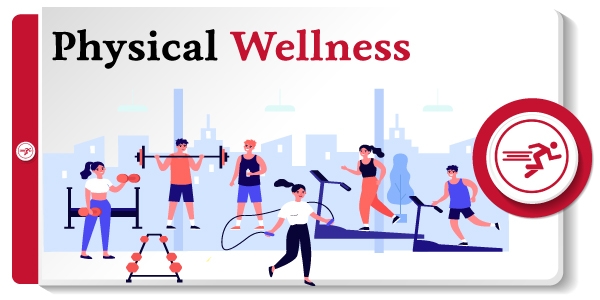
Physical wellness refers to being in good physical and mental health and active. A physically healthy individual gets adequate rest, consumes nutritious meals, and participates in moderate-intense physical exercise for most or all days of the week (ideally all). They also ensure regular medical check-ups are scheduled and engage in safe sexual behaviors.
Physical wellness can be assessed through measuring musculoskeletal fitness, cardiorespiratory endurance (or cardiorespiratory endurance), muscular strength and flexibility. Each area can be enhanced through diet, exercise and hydration strategies.
Aerobic activity can improve heart and lung health by helping to prevent high blood pressure, diabetes, stroke, high cholesterol levels, depression and more. Aerobic activities include walking, swimming, biking and more. Muscular fitness helps lower risk for osteoporosis while increasing energy levels; flexibility allows tendons, muscles and ligaments to stretch through their full range-of-motion for increased energy output and longevity.
The Centers for Disease Control (CDC) recommends that adults strive to engage in 150 to 300 minutes (2 1/2 to 5 hours) of moderate-to-vigorous intensity physical exercise per week, on at least most, ideally all days. This goal may be accomplished by decreasing time spent sitting sedentarily, taking stairs instead of an elevator, or leaving public transportation one stop earlier and walking home from there.
Hydration is essential to physical wellness. Experts suggest drinking approximately two litres (8 cups) of water daily - not only will this keep you hydrated, but it may help in digestion as well as give your skin a healthier appearance.